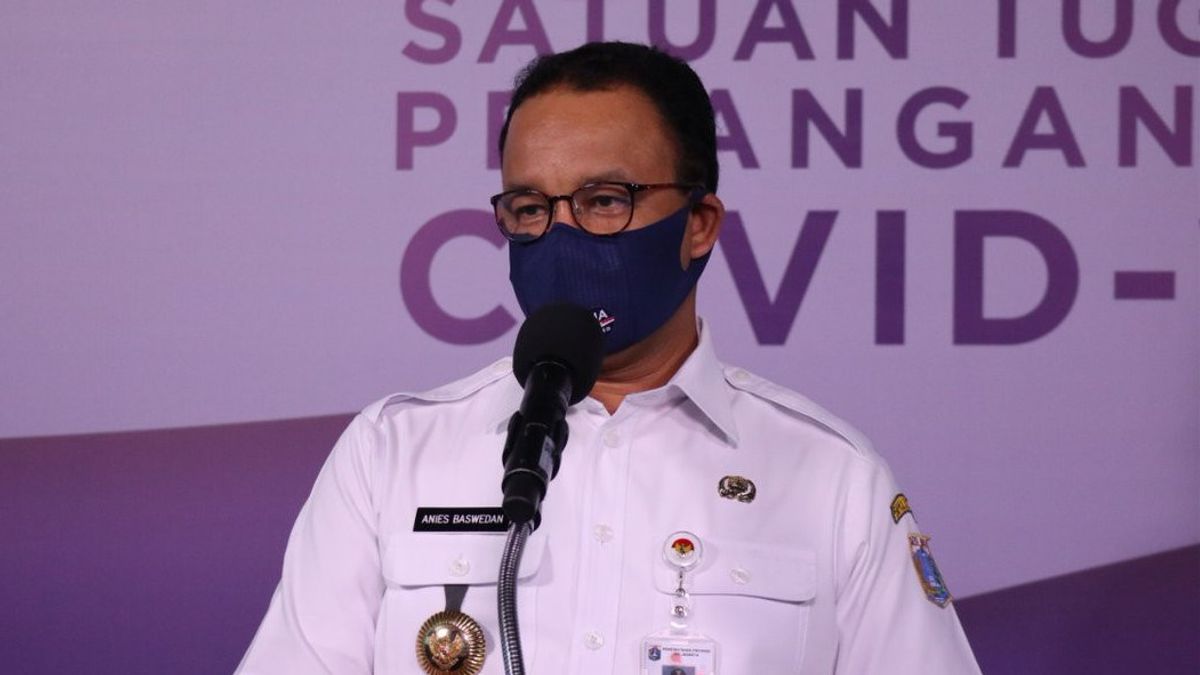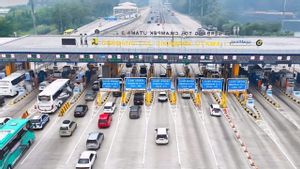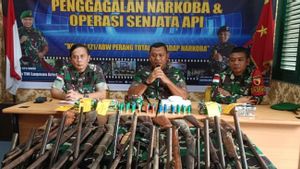JAKARTA - Large-scale social restrictions (PSBB) Transition volume II took effect today, Monday 12 October. Restaurants and cafes are allowed to serve visitors to dine-in . Even so, entrepreneurs in malls or shopping centers still want their employees' salaries to be borne by the DKI Jakarta Provincial Government (Pemprov).
Chairman of the Association of Indonesian Shopping Center Tenants (Hippindo) Budihardjo Iduansjah said that cash assistance to companies to pay employee salaries was very important in difficult times due to the COVID-19 pandemic.
Budi said that the number of visits to shopping centers fell again due to the strict PSBB policy imposed by the DKI Jakarta Provincial Government some time ago. In fact, in August and September managers and entrepreneurs in malls are trying to increase visits to restore their business.
Furthermore, he said, this decline is very difficult to restore in the near future, even though the provincial government has allowed restaurants and cafes to serve dine-ins . It will take at least one to two months for increased visits.
Not only that, Budi said, the strict PSBB policy that prohibits dine-in depletes the company's cash. Therefore, money assistance to pay employee salaries can save both the company and the employees from the threat of layoffs.
"The company cash is no longer available, we need help. The language is capitalized first. The company's cash flow takes 3 months to rotate. Just help employees' salaries first. Employers are helped first so that employees can work. So that the company can still think about new innovations to create fields. work, "he said, when contacted by VOI , Monday, October 12.
According to Budi, if the government does not immediately assist the company's cash flow by providing employee salary assistance, many companies will close down. As a result, there will be mass layoffs and cause an increase in the number of unemployed.
"If the company is unable to pay (salaries), how do (employees) want to work," he explained.
Budi said, apart from asking for salary assistance for employees, his party has also sent a letter to the DKI Provincial Government. One that is being asked for is tax incentives.
"We have also submitted letters asking for tax incentives that can be mitigated, or paid in installments. Yesterday we submitted the submission of the PBB, from the DKI Regional Government that it has been (allowed) to be paid in three times, it has helped compared to not being able to (installments)," he said .
Contacted separately, the Chairperson of the Indonesian Shopping Center Management Association (APPBI) Alphonzus Widjaja emphasized that the transition PSBB does not make conditions better. Because, different only restaurants and cafes can serve dine-in .
[/ read_more]
Alphonzus also said that there was nothing special during this transitional PSBB period. Because, so far the shopping center is still open. So far, shopping centers have shown seriousness in implementing strict, disciplined and consistent health protocols.
"This commitment will continue to be maintained during the Transitional PSBB period so that people can shop safely and healthily," he said.
Meanwhile, the Operational Director of PT Eatwell Culinary Indonesia in charge of Ta Wan, Andrias Chandra welcomed the DKI Jakarta Provincial Government's decision to allow restaurants to serve dine-ins again .
Regarding the new transitional PSBB policy where restaurants and cafes need to collect data on employees and visitors, Andrias admitted that he would study it first. This is because the regulations regarding this matter were only delivered yesterday afternoon.
"Later we will learn and prepare it first. The point is that it is good for contact tracing . It remains only to apply the rules," he explained.
New Transitional PSBB Policy
As is well known, the DKI Jakarta Provincial Government has relaxed the emergency brake policy in the Capital City and will again impose transitional Large-Scale Social Restrictions (PSBB) starting today. During this transition period, there are new policies that all parties must comply with.
Previously, DKI Jakarta Governor Anies Baswedan said the new policy implemented was the data collection of visitors and employees in the opened sector. Data collection can use a guest book (manual) or technology applications that have collaborated with the government to facilitate epidemiological analysis, especially contact tracing (close contact tracing ) of positive cases.
There are 11 essential sectors that are allowed to open during the PSBB transition, namely health, food / food / beverage, energy, communication and information technology, finance, logistics, hospitality, construction, strategic industries, basic services, public utilities and industries which are designated as national vital objects and certain objects, and / or daily needs.
"The information that must be available in the data collection is the name, telephone number and population identification number (NIK)," he said, in a written statement received by VOI , Sunday, October 11.
Shopping centers or malls, as well as restaurants, restaurants, or cafes are one type of business in the essential sector that is permitted. During this Transitional PSBB, they were allowed to dine in at 06.00-21.00 WIB.
The regulations for restaurants or shopping centers are only allowed to serve 50 percent of the visitor capacity. The minimum distance between tables and chairs is 1.5 meters for tenant or restaurant owners.
Servants are required to wear masks, face shields and gloves. Meanwhile, a restaurant that has a live music / pub TDUP permit can hold live music with visitors sitting on distant chairs, not standing and / or on the floor, and not causing a crowd.
The regulation is based on Governor Regulation No. 101/2020 concerning Amendments to Pergub No. 79/2020 concerning the Implementation of Discipline and Law Enforcement of Health Protocols as Efforts to Prevent and Control COVID-19. This regulation was signed by DKI Jakarta Governor Anies Baswedan on October 9, 2020.
[/ read_more]
The English, Chinese, Japanese, Arabic, and French versions are automatically generated by the AI. So there may still be inaccuracies in translating, please always see Indonesian as our main language. (system supported by DigitalSiber.id)













